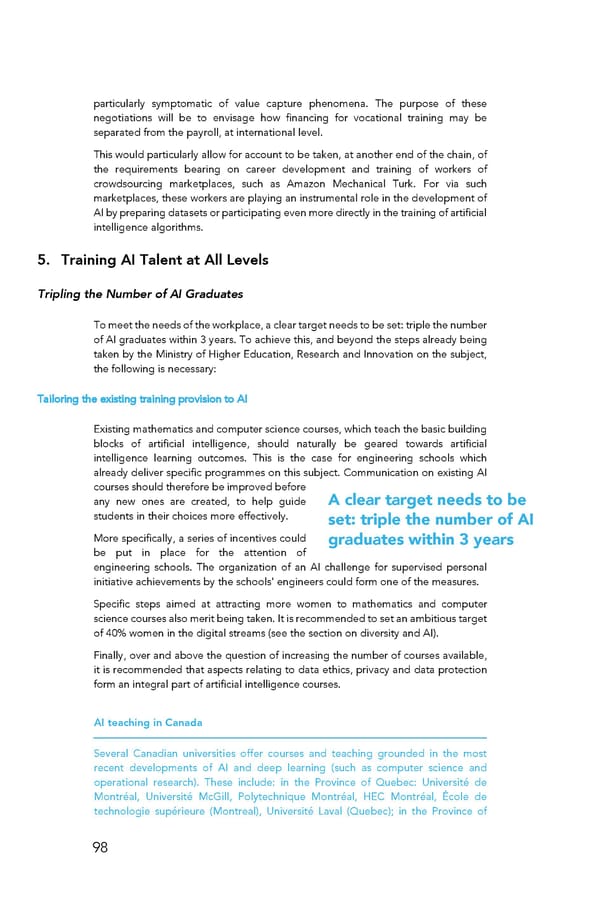particularly symptomatic of value capture phenomena. The purpose of these negotiations will be to envisage how financing for vocational training may be separated from the payroll, at international level. This would particularly allow for account to be taken, at another end of the chain, of the requirements bearing on career development and training of workers of crowdsourcing marketplaces, such as Amazon Mechanical Turk. For via such marketplaces, these workers are playing an instrumental role in the development of AI by preparing datasets or participating even more directly in the training of artificial intelligence algorithms. 5. Training AI Talent at All Levels Tripling the Number of AI Graduates To meet the needs of the workplace, a clear target needs to be set: triple the number of AI graduates within 3 years. To achieve this, and beyond the steps already being taken by the Ministry of Higher Education, Research and Innovation on the subject, the following is necessary: Tailoring the existing training provision to AI Existing mathematics and computer science courses, which teach the basic building blocks of artificial intelligence, should naturally be geared towards artificial intelligence learning outcomes. This is the case for engineering schools which already deliver specific programmes on this subject. Communication on existing AI courses should therefore be improved before any new ones are created, to help guide A clear target needs to be students in their choices more effectively. set: triple the number of AI More specifically, a series of incentives could graduates within 3 years be put in place for the attention of engineering schools. The organization of an AI challenge for supervised personal initiative achievements by the schools' engineers could form one of the measures. Specific steps aimed at attracting more women to mathematics and computer science courses also merit being taken. It is recommended to set an ambitious target of 40% women in the digital streams (see the section on diversity and AI). Finally, over and above the question of increasing the number of courses available, it is recommended that aspects relating to data ethics, privacy and data protection form an integral part of artificial intelligence courses. AI teaching in Canada Several Canadian universities offer courses and teaching grounded in the most recent developments of AI and deep learning (such as computer science and operational research). These include: in the Province of Quebec: Université de Montréal, Université McGill, Polytechnique Montréal, HEC Montréal, École de technologie supérieure (Montreal), Université Laval (Quebec); in the Province of 98
 For a Meaningful AI - Report Page 98 Page 100
For a Meaningful AI - Report Page 98 Page 100